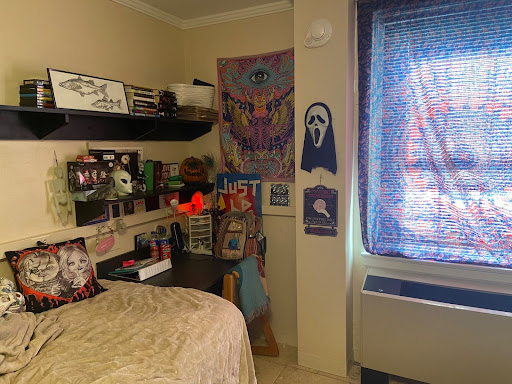As someone born and raised in Chapel Hill, I found the recent news of UNC administration’s mishandling of sexual assault cases to be especially nauseating.
Jezebel reported that former Assistant Dean of Students Melinda Manning and four other students filed a complaint on Jan. 16 with the U.S. Department of Education’s Office of Civil Rights for themselves and 64 sexual assault victims on campus. According to Jezebel, Manning was forced to underreport the number of sexual assault cases at UNC.
One student involved in this case is sophomore Landen Gambill.
According to The Daily Tar Heel, Gambill pressed charges on her ex-boyfriend with the Honor Court after enduring months of “stalking, threats and harassment” and continuous sexual and verbal abuse.
Gambill told The Daily Tar Heel about her experience with the Honor Court process, consisting of “irrelevant and inappropriate” questions that implied she was untrustworthy because of a history of clinical depression and that she was partially responsible for the abuse because she didn’t end the relationship.
Now, as if Gambill hasn’t suffered enough from her abuser and this difficult, painful process, she faces expulsion, among many potential punishments, for speaking up about her assault and the university’s reaction.
Gambill was warned by the graduate student attorney general about her Honor Code violation for “disruptive or intimidating behavior against her alleged rapist,” according to The Huffington Post.
You know what I bet was intimidating? Surviving sexual assault and then mustering up the courage to speak publicly about it.
You know what I bet was intimidating? Facing expulsion before a court because you reported incidents of violence.
Gambill isn’t asking for her abuser’s head on a stick. She’s not out seeking revenge. She suffered psychological and physical abuse at the expense of a fellow student, who has notably remained nameless and faceless throughout this entire process. She assumed that the university would have her best interest at heart and help her feel safe.
Although it is possible to falsely accuse someone of rape, college campus studies show that it’s extremely rare — about 3 to 6 percent of cases, according to National Public Radio.
So, why do so many insist upon finding blame within the victim?
“(To stop) victim blaming, we need to get rid of the idea that someone is automatically lying when they accuse someone of rape,” said sophomore and President of SAASA Chelsea Yarborough. “It’s as if the fear of being called a rapist is worse than possibly violating someone’s consent and that needs to change.”
Unfortunately, Gambill and the 64 other reported cases don’t stand alone. There are countless incidents across the globe where women are silenced when reporting such violence.
“Rape is a felony in North Carolina, and so is burglary, arson, treason and murder,” said Associate Professor of Sociology and Anthropology Julie Winterich. “If a student seriously injured another student, attempted to kill or did kill another student or burned a college building down, would they first be turned over to an ‘Honor Court’ that consists of students? Can you imagine?
“UNC has stopped using the Honor Court as of Jan. 2012, but that institutional practice in and of itself highlights deep problems with taking sexual assault seriously both in higher education and in our society generally.”
Nancy Daukas, a women’s gender and sexuality studies professor in philosophy who lives in Chapel Hill, also finds the implications to be far reaching.
“Sexual assault is an ongoing problem on all college and university campuses,” said Daukas in an email interview. “UNC-Chapel Hill is not the only school where administrators who should be supporting survivors have instead tried to silence them and to silence other administrators who are trying to do the right thing.”
So what next? Is it possible that the attention this story and other sexual assault stories across the country are receiving could bring much needed social change? I’m not sure, but I’m hopeful.
A friend of Gambill’s, who wished to remain anonymous, hopes for some change.
“So many UNC students have responded with love and support for Landen and other survivors,” said the anonymous junior. “The resulting dialogue that has emerged on campus won’t go unnoticed by administrators as they make policy decisions in the coming weeks and months.”
As for what we can do on our own campus, Winterich offers some advice.
“In our education and training, we need to focus on comprehensive support and resources for victims, and we need to address why some men assault women and other men,” said Winterich. “We continue to live in a culture that does not address male privilege, and anti-sexism training is critical for every member of our campus.”
Categories:
UNC-Chapel Hill needs to stop blaming the victims
March 29, 2013
0
More to Discover











